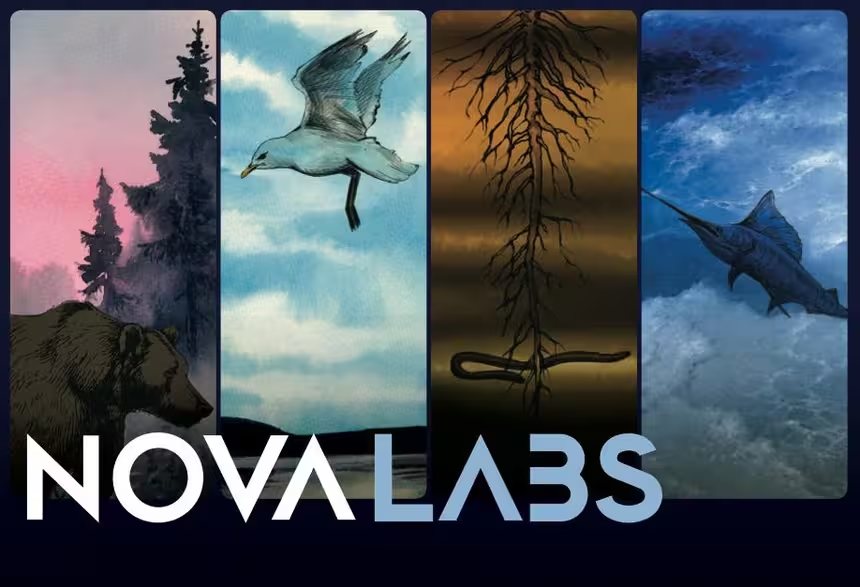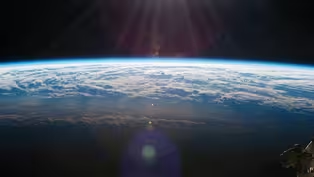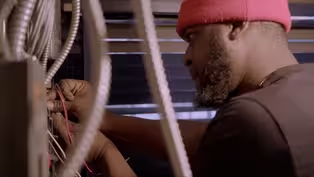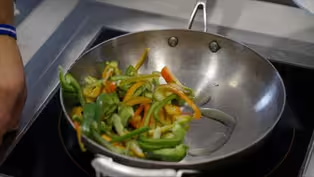
Chasing Carbon Zero Sneak Peek
Clip: Season 50 Episode 6 | 1mVideo has Closed Captions
A new film from NOVA examines technologies that could get us to carbon zero by 2050.
Follow scientists and engineers as they explore different solutions for lowering our carbon emissions: from switching to induction stoves for cooking to making heat pumps accessible.
Problems playing video? | Closed Captioning Feedback
Problems playing video? | Closed Captioning Feedback
Additional funding is provided by the NOVA Science Trust with support from Anna and Neil Rasmussen, Howard and Eleanor Morgan, and The Arthur Vining Davis Foundations. Major funding for NOVA...

Chasing Carbon Zero Sneak Peek
Clip: Season 50 Episode 6 | 1mVideo has Closed Captions
Follow scientists and engineers as they explore different solutions for lowering our carbon emissions: from switching to induction stoves for cooking to making heat pumps accessible.
Problems playing video? | Closed Captioning Feedback
How to Watch NOVA
NOVA is available to stream on pbs.org and the free PBS App, available on iPhone, Apple TV, Android TV, Android smartphones, Amazon Fire TV, Amazon Fire Tablet, Roku, Samsung Smart TV, and Vizio.
Buy Now

NOVA Labs
NOVA Labs is a free digital platform that engages teens and lifelong learners in games and interactives that foster authentic scientific exploration. Participants take part in real-world investigations by visualizing, analyzing, and playing with the same data that scientists use.Providing Support for PBS.org
Learn Moreabout PBS online sponsorship(inspiring music) - When I think about how we get to zero carbon electricity, you need a lot of different types of technologies all playing together.
(inspiring music) - I think it's really important, after raising concern about climate change for so long, to give people some idea where the levers are to change it.
- We have technologies today that we can use to actually bring down emissions, make our communities healthier.
We don't need to wait for some massive breakthrough.
We have solutions.
- We go straight to the bottom line in the form of green technology.
Heating and cooling, that can reduce a building's fossil fuel usage by 70%.
There's enough offshore wind capacity to power the country four times over.
- This is something that just a few years ago was considered impossible.
- PBS dares to cover the things that are important, and given the stakes, I'm convinced that people can make the effective change.
(uplifting music)
Video has Closed Captions
Preview: S50 Ep6 | 29s | Here’s how the U.S. could reach net-zero carbon emissions by 2050. (29s)
How Heat Pumps Can Help Cities Lower Carbon Emissions
Video has Closed Captions
Clip: S50 Ep6 | 4m 17s | Landlords are switching from gas furnaces to heat pumps to reduce their carbon footprint. (4m 17s)
Why Induction Stoves Are Better for You and the Environment
Video has Closed Captions
Clip: S50 Ep6 | 2m 56s | Induction stovetops are an energy-efficient alternative to traditional gas stoves. (2m 56s)
Providing Support for PBS.org
Learn Moreabout PBS online sponsorship
- Science and Nature

Capturing the splendor of the natural world, from the African plains to the Antarctic ice.













Support for PBS provided by:
Additional funding is provided by the NOVA Science Trust with support from Anna and Neil Rasmussen, Howard and Eleanor Morgan, and The Arthur Vining Davis Foundations. Major funding for NOVA...





